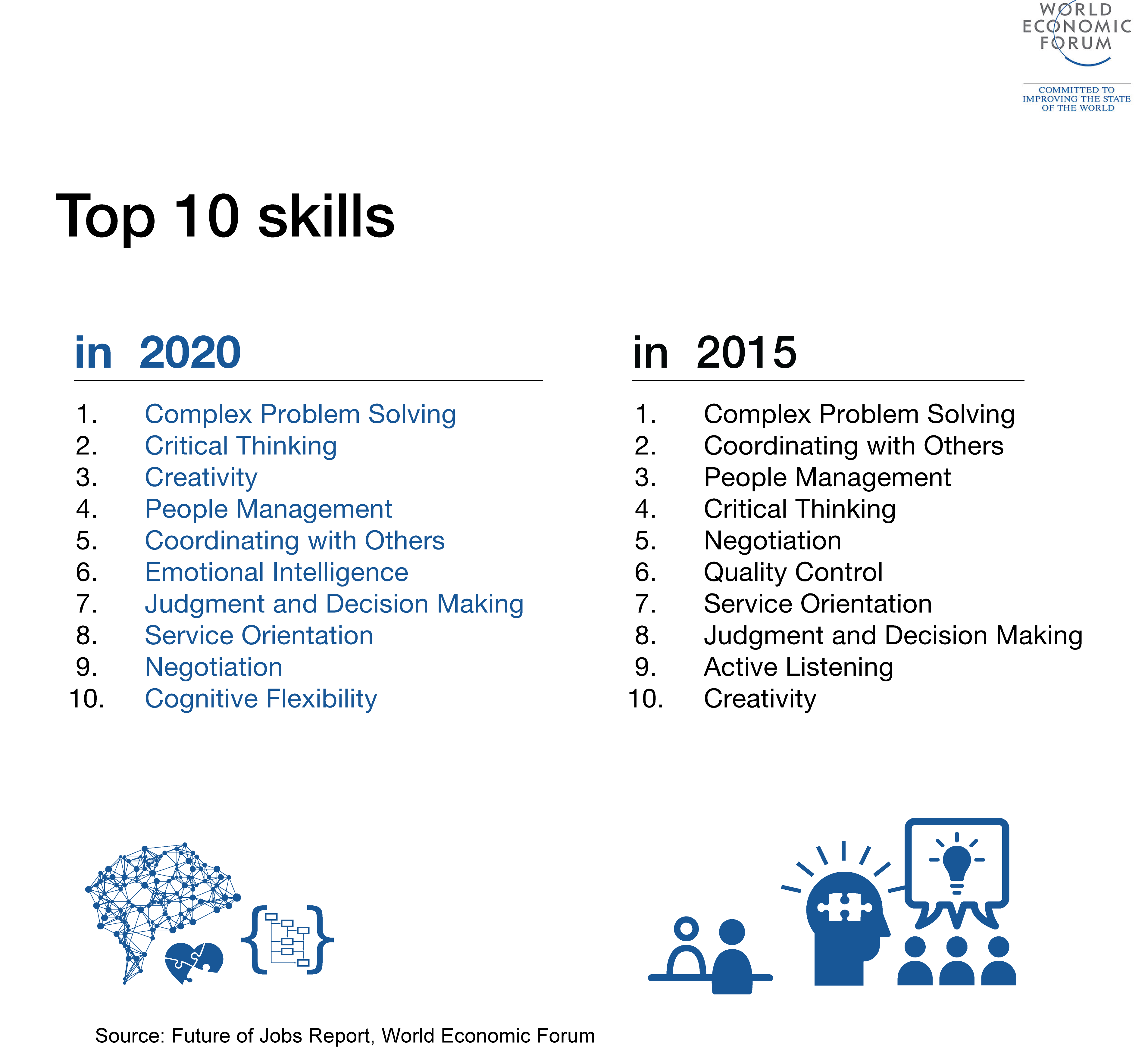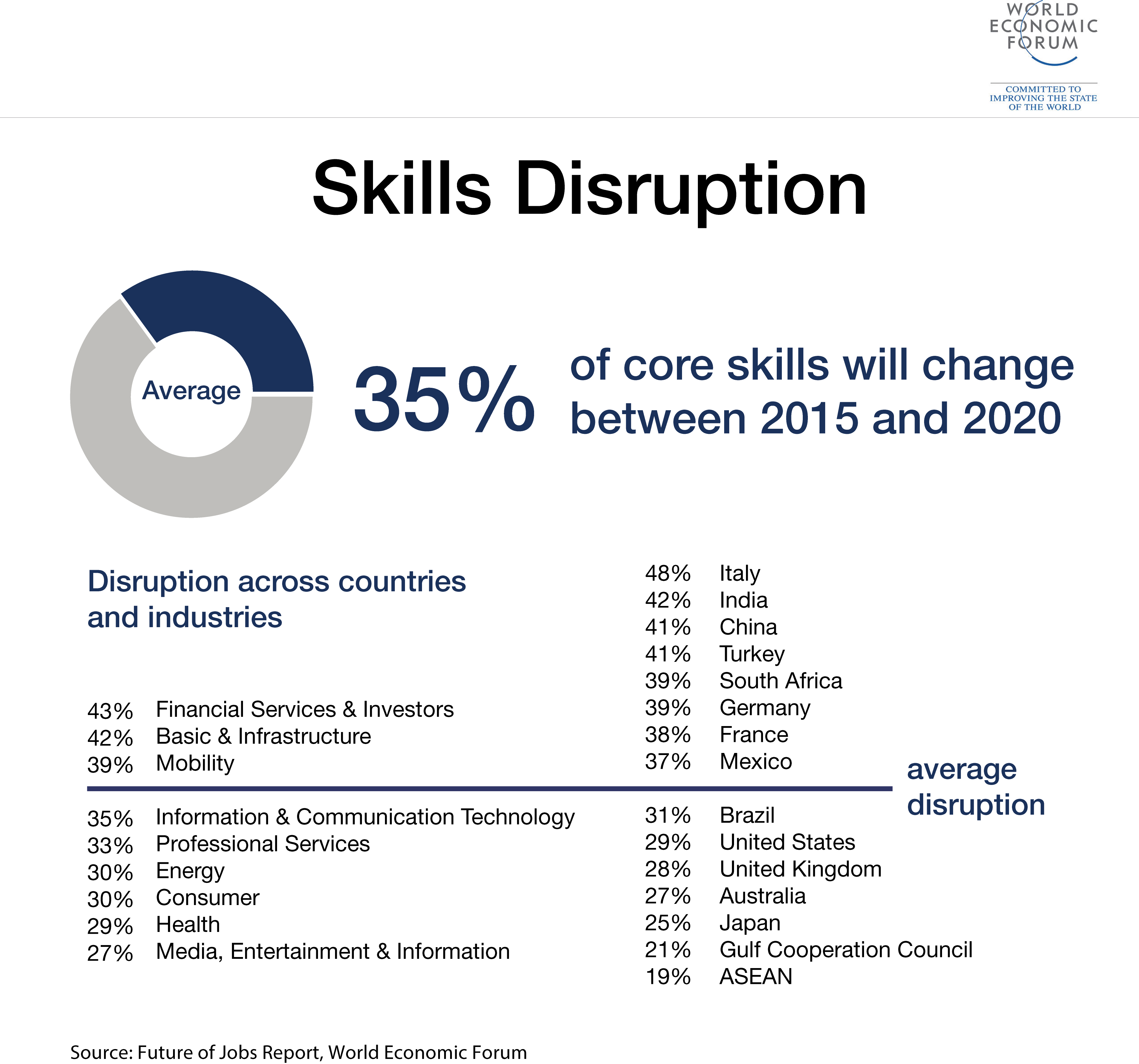5 million jobs to be lost by 2020

Image: The hand of humanoid robot AILA (artificial intelligence lightweight android) operates a switchboard during a demonstration by the German research centre for artificial intelligence. REUTERS/Fabrizio Bensch
Stay up to date:
Future of Work
We are seeing an era of unprecedented change in the way we work. Rapid advancements in the fields of technology, such as artificial intelligence and machine learning, and in how we create things, such as robotics, nanotechnology, 3D printing and biotechnology, will dramatically change the characteristics of the global workforce.
The Fourth Industrial Revolution is changing the workplace fast, and we will need to adapt our skills to be ready for it.

What will happen to jobs?
According to the Forum’s Future of Jobs report, some jobs will be wiped out, others will be in high demand, but all in all, around 5 million jobs will be lost.
Already jobs exist now that had never been heard of five years ago: the role of data scientist, which is in huge demand, is one example.
Other jobs will start to require skills not previously associated with them. Those working in sales or manufacturing, for instance, will need a better grasp of technology, thanks to the advent of the internet of things.
How can we prepare?
Everywhere we look, skillsets will need to be radically altered to keep pace with the changes taking place in the world of work. If businesses are to keep up with the disruption brought on by the Fourth Industrial Revolution, they will need to help their staff learn new skills.
The businesses that thrive will be those that put talent development at the centre of their operation. Using data analytics, HR functions will need to learn how to look ahead, analysing skills gaps and working out how to align their workforce to meet current and future challenges.
Workplace diversity will become even more important, and the shifting physical and organizational boundaries of the workplace will allow talent to be sourced globally – and remotely.

The pace of change of the Fourth Industrial Revolution will vastly outpace those that have gone before. The impacts are already being felt, and, according to this report, most drivers of change will be well embedded by 2020. The need for urgent action is clear.
The Annual Meeting is taking place in Davos from 20 to 23 January, under the theme “Mastering the Fourth Industrial Revolution”.
Don't miss any update on this topic
Create a free account and access your personalized content collection with our latest publications and analyses.
License and Republishing
World Economic Forum articles may be republished in accordance with the Creative Commons Attribution-NonCommercial-NoDerivatives 4.0 International Public License, and in accordance with our Terms of Use.
The views expressed in this article are those of the author alone and not the World Economic Forum.
Related topics:
Forum Stories newsletter
Bringing you weekly curated insights and analysis on the global issues that matter.
More on Forum InstitutionalSee all
Victoria Masterson, Stephen Hall and Madeleine North
March 25, 2025
Lorez Qehaja
March 19, 2025
Madeleine North
January 28, 2025





